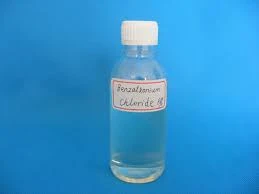scale and corrosion inhibitor for cooling tower
Scale and Corrosion Inhibitors for Cooling Towers
Cooling towers are essential components in many industrial processes, providing effective means to remove excess heat from water systems. However, they face significant challenges from scale and corrosion, which can severely impact efficiency and operational longevity. Therefore, the use of scale and corrosion inhibitors is crucial in maintaining the optimal performance of cooling towers.
Scale formation occurs when dissolved minerals in water precipitate out and accumulate on heat exchange surfaces. Common culprits include calcium carbonate, calcium sulfate, and silica. When these scales build up, they impede heat transfer, causing higher energy consumption and potentially leading to overheating and equipment failure. In fact, just a small amount of scale can increase energy costs significantly, sometimes by as much as 10-15%.
Corrosion, on the other hand, is the deterioration of metal components due to chemical reactions, often exacerbated by water quality and environmental factors. Corrosive environments can arise from the presence of oxygen, low pH levels, and high temperatures, along with the presence of specific ions like chlorides. Corrosion not only shortens the lifespan of cooling tower components but also leads to leaks and potential system failures.
scale and corrosion inhibitor for cooling tower

To combat these issues, chemical inhibitors are utilized. Scale inhibitors are designed to interfere with the precipitation process, keeping minerals in solution and preventing them from depositing on surfaces. Common types of scale inhibitors include phosphonates, polyacrylates, and citrates. These chemicals work by either threshold inhibition, which enables a higher concentration of dissolved minerals before precipitation occurs, or by dispersing existing scale particles, preventing buildup.
Corrosion inhibitors, on the other hand, protect metal surfaces through a variety of mechanisms. They can form protective films on the surface, neutralize corrosive agents, or reduce the electrochemical reactions that cause corrosion. Common corrosion inhibitors such as sulfonates and amines can be applied in various forms, including chromates, phosphates, or organic inhibitors.
The selection of appropriate inhibitors should be based on the specific conditions of each cooling tower system, including water chemistry, temperature, and operational demands. Regular monitoring and adjustment of inhibitor concentrations are essential to ensure optimal performance, relying on water quality testing and system inspections.
In conclusion, scale and corrosion represent significant threats to the efficient operation of cooling towers. The application of scale and corrosion inhibitors is a vital strategy that can help mitigate these challenges, ultimately leading to improved efficiency, reduced maintenance costs, and extended equipment lifespan. By investing in proper treatment solutions, industries can enhance the reliability and sustainability of their cooling systems.
-
Water Treatment with Flocculant Water TreatmentNewsJun.12,2025
-
Polymaleic AnhydrideNewsJun.12,2025
-
Polyaspartic AcidNewsJun.12,2025
-
Enhance Industrial Processes with IsothiazolinonesNewsJun.12,2025
-
Enhance Industrial Processes with PBTCA SolutionsNewsJun.12,2025
-
Dodecyldimethylbenzylammonium Chloride SolutionsNewsJun.12,2025





